
Summer Afterglow
I'm a fan of September: lukewarm sun without the crowded campsites, I-94 parking lot conditions, dreadful dew points & raging T-storms. What's not to like? Take full advantage of 70s all this week; a perfect spell to close up the cabin or wrestle with the dock. ECMWF guidance hints at 40s & 50s by the middle of next week; an early dose of October. So make the most of a mild, quiet week.
For the month temperatures are running 4-5 F warmer than average in the Twin Cities.
The calendar says autumn, but Meteorological Autumn really began closer to September 1, marking the end of the 90 warmest days of the year, historically.
Take nothing for granted. The first frost of the season is probably less than 2 weeks away for the metro. First flurries? Maybe 3-4 weeks from now. Something to look forward to.
As much as I'm enjoying blue sky, mild breezes and unlimited visibility, we still need rain. Ham Weather calculations show 2 to 5 inches are required to pull out of the drought across most of Minnesota.
A fine, blue-ribbon week of weather ends with 80F and late-day thunder Friday; maybe a period of steadier rain much of Saturday. Sunday looks like the drier, nicer day for the Renaissance Festival.
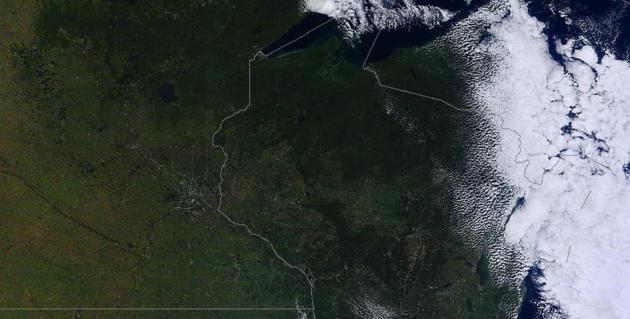
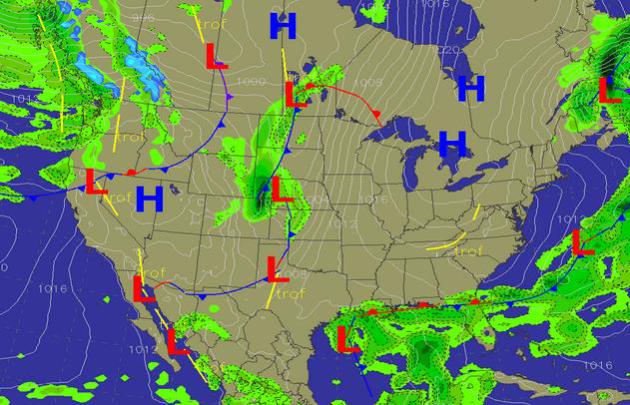
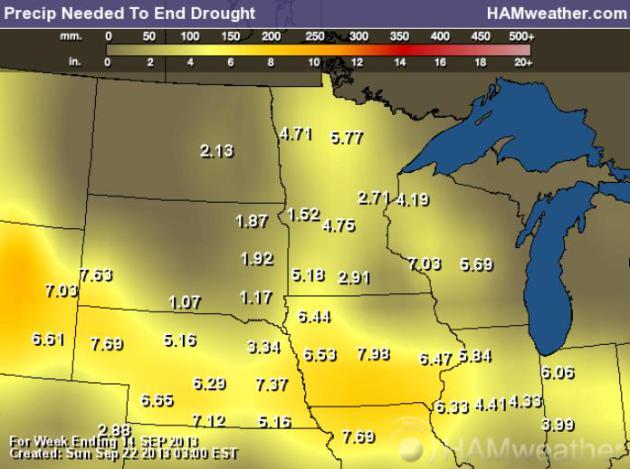
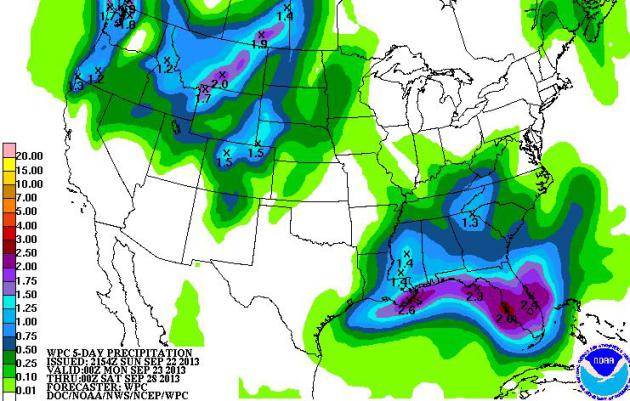
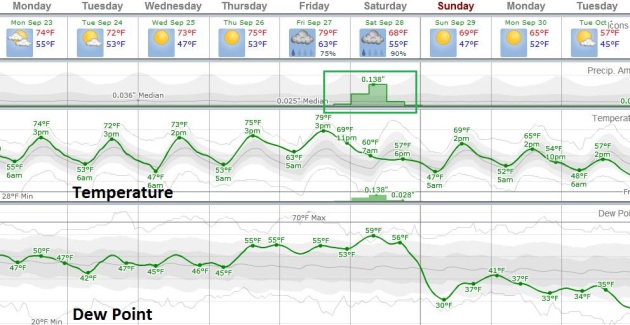
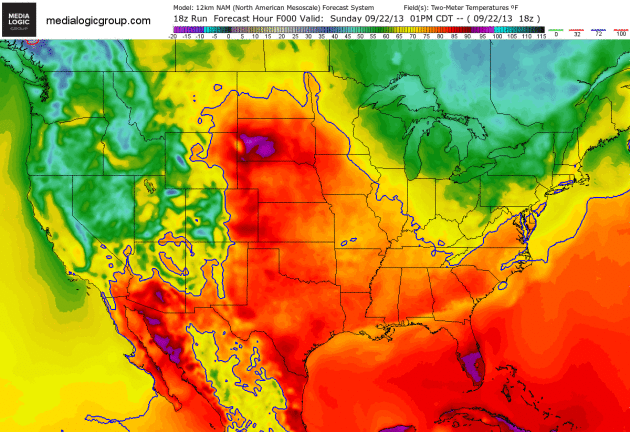
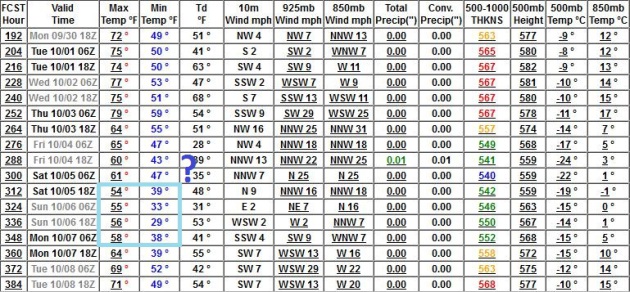
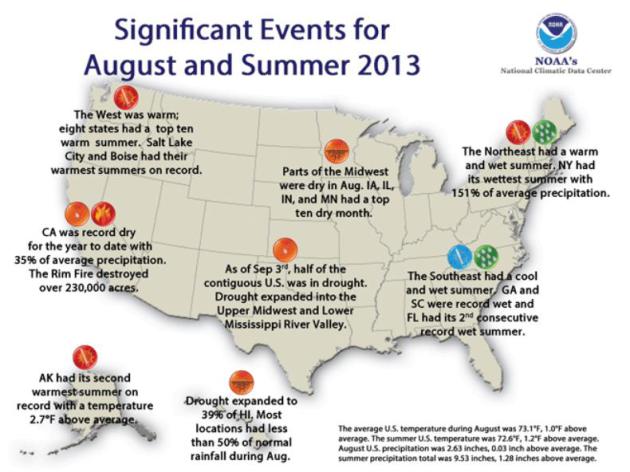
- The summer contiguous U.S. temperature of 72.6°F was 1.2°F above the 20th century average and the 15th warmest summer on record for the nation.
- The West and parts of the Northeast were much warmer than average during summer. In the West, eight states, from New Mexico to Washington, had seasonal temperatures that ranked among the ten warmest on record. In the Northeast, four states had one of their ten warmest summers on record.
- Below-average summer temperatures were observed in the Southeast and parts of the Ohio Valley, but no state had summer temperatures ranking among the ten coolest.
- The Alaska statewide average summer temperature was 2.7°F above the 1971-2000 average and ranked as the second warmest summer in the 96-year period of record for the state. The warmest June-August occurred in 2004 when the statewide temperature was 4.1°F above average.
- The summer precipitation total for the contiguous U.S. was 9.53 inches, 1.28 inches above average. This marked the eighth wettest summer on record and the wettest since 2004.
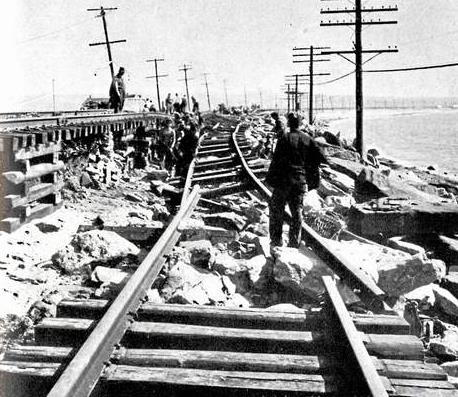
• We’d know it was coming a lot sooner, and we’d know how big a storm it really was.
• We’d be able to get out of Dodge (or Milford or New Haven), evacuating to higher, farther-away ground, so we likely wouldn’t lose as many lives.
Now the bad news:
• We’d lose at least as much of our power and our property — houses, cars, trees, railroad tracks, backyard swing sets — because there are a lot more trees, a lot more houses on the coast, and it would be far too costly to rebuild them to withstand another Atlantic Express, as the ’38 storm was called..."
Photo credit above: "The tide tore away the railroad tracks in New Haven."
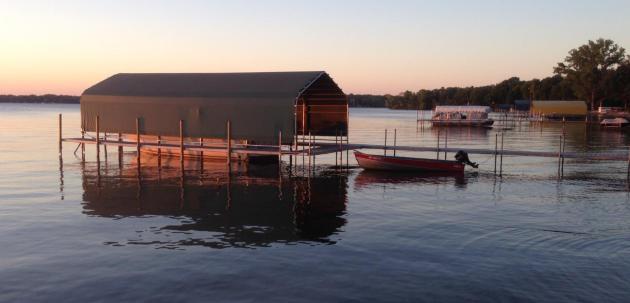
Climate Stories....
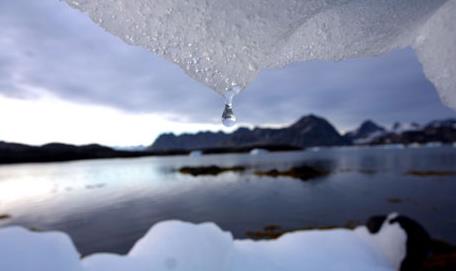
Photo credit above: "The report dismisses climate change denier's suggestions that recent global warming is explained by variations in the sun's energy." Photograph: John Mcconnico/AP.
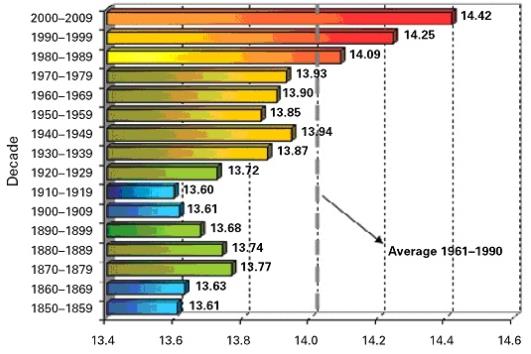
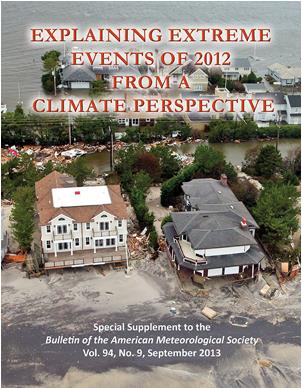
The world is continuing to grow warmer. It just isn't warming as fast as predicted. So what does this mean exactly?
Chris Mooney explains, "First, 'global warming' never meant that temperatures increase relentlessly, year after year--it's more complicated than that.
"'There's always more than one thing going on in the climate system,' explains climate researcher Jerry Meehl of the National Center for Atmospheric Research in Boulder, Colorado. There are really hot years and there are less hot years. But since the 1950s, each successive decade has been hotter than the last, according to the World Meteorological Organization, and the 2000s were the warmest decade 'since the start of modern measurements in 1850.'
- See more at: http://blogs.redding.com/dcraig/archives/2013/09/despite-what-yo.html#sthash.dgxVL9La.dpuf
Chris Mooney explains, "First, 'global warming' never meant that temperatures increase relentlessly, year after year--it's more complicated than that.
"'There's always more than one thing going on in the climate system,' explains climate researcher Jerry Meehl of the National Center for Atmospheric Research in Boulder, Colorado. There are really hot years and there are less hot years. But since the 1950s, each successive decade has been hotter than the last, according to the World Meteorological Organization, and the 2000s were the warmest decade 'since the start of modern measurements in 1850.'
- See more at: http://blogs.redding.com/dcraig/archives/2013/09/despite-what-yo.html#sthash.dgxVL9La.dpuf
The world is continuing to grow warmer. It just isn't warming as fast as predicted. So what does this mean exactly?
Chris Mooney explains, "First, 'global warming' never meant that temperatures increase relentlessly, year after year--it's more complicated than that.
"'There's always more than one thing going on in the climate system,' explains climate researcher Jerry Meehl of the National Center for Atmospheric Research in Boulder, Colorado. There are really hot years and there are less hot years. But since the 1950s, each successive decade has been hotter than the last, according to the World Meteorological Organization, and the 2000s were the warmest decade 'since the start of modern measurements in 1850.'
- See more at: http://blogs.redding.com/dcraig/archives/2013/09/despite-what-yo.html#sthash.dgxVL9La.dpuf
Chris Mooney explains, "First, 'global warming' never meant that temperatures increase relentlessly, year after year--it's more complicated than that.
"'There's always more than one thing going on in the climate system,' explains climate researcher Jerry Meehl of the National Center for Atmospheric Research in Boulder, Colorado. There are really hot years and there are less hot years. But since the 1950s, each successive decade has been hotter than the last, according to the World Meteorological Organization, and the 2000s were the warmest decade 'since the start of modern measurements in 1850.'
- See more at: http://blogs.redding.com/dcraig/archives/2013/09/despite-what-yo.html#sthash.dgxVL9La.dpuf
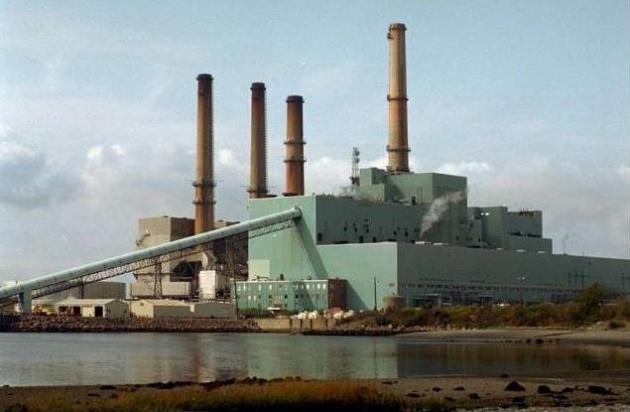
Photo credit above: "The Brayton Point Power Station in Somerset, Mass., was the site of a recent protest against fossil fuels." / AP FILE.